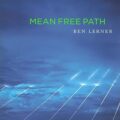A Lot from a Little: Demystifying the Aphoristic Poem

“Tulip” by Mark Rothko
Aphoristic poems are a verbal sleight of hand: minute, almost indecipherable movements generating outsized effects. In his paper, “Aptness and Truth in Verbal Metaphor,” David Hills writes that a contracted metaphor “plays itself out in the narrow confines of a single word or phrase” and “can occur as one constituent of a sentence whose interpretation is otherwise entirely literal.” Through precise word choice and contracted metaphor alone, an author can impart a scope of meaning disproportionate to the length of the poem. Where longer poems elaborate metaphors, aphoristic poems pare metaphors to their essence. Deleting the least relevant details concentrates the importance of the details that are included.
“Divorce,” by Billy Collins, is a superb example of these two considerations—lexical precision and contracted metaphor—working in tandem:
Once, two spoons in bed,
now tined forks
across a granite table
and the knives they have hired.
The first word establishes a sense of nostalgia while alerting the reader that they shouldn’t get too attached. In the second line, the word “tined” refutes the comfortably playful image of two spoons in bed. It propels the poem instantly from pleasure to pain by the juxtaposition of that smooth, elongated vowel sound of spoons followed by the sharp i of tined. The word “granite” further plies the senses with the coldness of stone. In twelve short words, Collins carries the poem from comfort, to pain, to a hard coldness. And he does so, almost entirely, through sound and juxtaposition. He creates a world of meaning in which the payoff is much greater, and more complex, than might be expected from four short lines of silverware imagery. Speed is a significant contributor to the poem’s impact. That Collins is able to make a complex emotion so clear, and to do it so swiftly, is a testament to the powers of lexical precision and the contracted metaphor.
Aphoristic poems do not rely on simplicity and clarity of language to connect with readers; they often also rely on the ability of the poet’s imagination to capture events, or a whole life, through the selection of images. A definitive example is one of Gwendolyn Brooks’s seminal pieces:
The Pool Players.
Seven at the Golden Shovel.We real cool. We
Left school. WeLurk late. We
Strike straight. WeSing sin. We
Thin gin. WeJazz June. We
Die soon.
The amount of information contained in this poem, both instantly visible and painstakingly concealed, is staggering. The alliteration in every line, coupled with internal rhyme and pointed end-stops, forces the reader to approach the poem lyrically, almost melodically. It exists as a song hiding under the guise of colloquialism.
The lexical precision in this poem reveals something more sinister as well. The word “Golden” contradicts the dark overtones and theme, also seen in the word “Seven,” with its biblical connotations, and in the antithetical word “sin.” Allusions to digging prefigure perfectly the last mortal words of the poem. Her use of repetition serves to create an especially jarring effect. By using three syllable lines, each ending with “We,” a tension and expectation are created. When “We” is no longer present in the last line, it evokes an uncomfortable realization, a loss to match the lost. The reader pauses. How soon the poem has passed, like the lives described.
In a few short words—even fewer when you realize that exactly one-third of the words are “We”—Brooks takes us from naïve bravado, to an ominous warning, to a bleak and devastating conclusion. This is what the best poets do. They create something greater than the sum of their words.
In their collaborative book, Braided Creek: A Conversation in Poetry, Jim Harrison and Ted Kooser have perfected an aphoristic poetry that, despite its brevity, takes on weighty and nuanced issues. The first of the correspondence of short poems—all of which are untitled and unattributed—reads:
How one old tire leans up against
another, the breath gone out of both
As in Collins’s “Divorce,” the importance of the first word becomes more evident as the poem progresses. Without “How,” the metaphor would be limited: the old tires are people leaning on each other for support. Its addition draws the reader’s attention away from the static condition of age and directs it toward the manner in which one might wear one’s aging. How the old tires lean becomes crucial—elevating the poem from a simple, literal observation to a less general, and more important, commentary on human aging and support.
Precision is critical in such tight confines. Selecting the right words makes the textuality transparent, opening the doors to deeper and more conceptual thinking. “I think I’d prefer to remember the effect of a work, rather than its specific words,” Kooser said in an interview. “For example, I like to recall how much I loved Marilynne Robinson’s novel, Housekeeping, but I can’t remember much about it. There’s a lot of pleasure in having a warm recollection like that, don’t you think? I’d rather preserve that recollection than reread the book.” The pair consistently achieves such insights. In another poem from Braided Creek, they write:
A coffin handle
leaves a lasting impression
on a hand.
In only ten words, which seem merely to articulate the sense-memory of a moment, Harrison and Kooser create an image of a pallbearer confronting their own mortality. It hinges on the pun in impressions, in which the memory of a date and time mark the emotional palm. This sort of wordplay is integral to the poetry of another occasionally aphoristic poet, Harryette Mullen. Enlisting homophones, wit, and humor, “Way Opposite” operates via an unexpected twist:
The opposite of walk?
A psychic with a crystal ball
and tarot deck
who sees green
when your palm is read.At the sign of a red palm
I don’t walk,
I run.
Poems such as this affirm that weighty issues can be handled not only efficiently, but delicately, in aphoristic writing. When words are chosen with precision, there’s no sacrifice for the sake of the constraints. Consider the following untitled piece from W.S. Merwin’s Asian Figures:
Life
Candle flame
Wind coming
In a mere five words delivered over three lines, the poem generates a sense of anxiety, even menace. This could have been presented as a simple simile: Life is like the flame of a candle, threatened by an approaching wind. Merwin, however, excises every unnecessary syllable, imbuing the poem with a power that outstrips the explanatory impact of the simile. In his book, Best Words, Best Order, Stephen Dobyns writes of this poem:
We are given three pieces of information and are asked to imagine a fourth. Two of those three pieces of information are presented as simile: Life is like a candle flame. Then a possible analogy is created by the third piece of information: a wind is approaching the candle flame. The question posed by the missing piece of information is that if life is like a candle flame, what is comparable to wind? We only have to ask the questions how and why to know the answer. Indeed, that asking seems unconscious and automatic.
With similes, a reader experiences only the extent of the expression: the thinking is done already. With these contracted metaphors, however, the reader’s experience is personal. The poem’s impact is generated by the imagination of the reader, and it amplifies the awareness that something significant has happened in a very small space. Nowhere is this notion of largesse from smallness more evident than in this untitled poem by Samuel Menashe: “A pot poured out / Fulfills its spout.” It speaks to loss, fulfillment, and sacrifice all at once. Every word in this poem engages in rhyme or alliteration. Menashe is truly a master of compression. Another example, though with a somewhat different twist, is his poem, “The Niche”:
The niche narrows
Hones one thin
Until his bones
Disclose him
Clarity and lucidity are signature elements, too, in the poetry of former U.S. Poet Laureate Kay Ryan. While her work runs the gamut in terms of length, her shorter poems offer excellent examples of the power of aphoristic verse. One such poem is titled “Intention”:
Intention doesn’t sweeten.
It should be picked young
and eaten. Sometimes only hours
separate the cotyledon
from the wooden plant.
Then, if you want to eat it,
you can’t.
As is typical of Ryan, she begins with relatively simple subjects, often with one or both feet in the realm of the abstract, and interlaces them with concrete corollaries. “Intention,” like the rest of the poems in her book, Elephant Rocks, employs an unforced rhyme and rhythm. The poem warns against procrastination, advocates acting on one’s impulses, and raises the consequences of failing to do so—all in seven short lines.
Well-crafted aphoristic poems can be efficiently, and therefore unexpectedly, profound. A poet must use not only his or her creativity and methodical word choice. They must also master the art of self-restraint. A short poem can stand for something much greater than the words within it, or the expectations it first proposes. Roses appear in a simple handkerchief; dimes drop from the lobes of an ear. Mortality can be captured in ten thousand lines, or in ten. It is in this seeming contradiction that the success of the aphoristic poem seems most like magic.
About Stefan Strychar
Stefan Strychar was born and raised in Detroit. He earned an MFA in creative writing from Fairleigh Dickinson University. He spent the next year as a poetry reader for The Literary Review. In his travels since, he has completed an MLS in archives management, interned at Harvard and MIT, released three albums of music, and studied black and white film photography. He is currently a contract proofreader.





